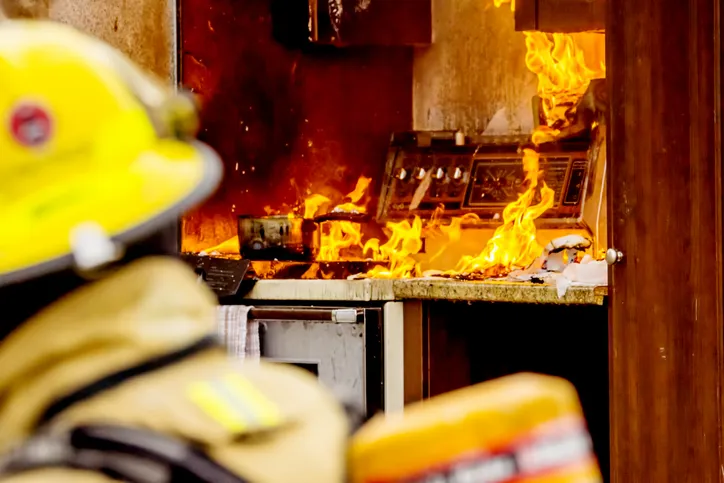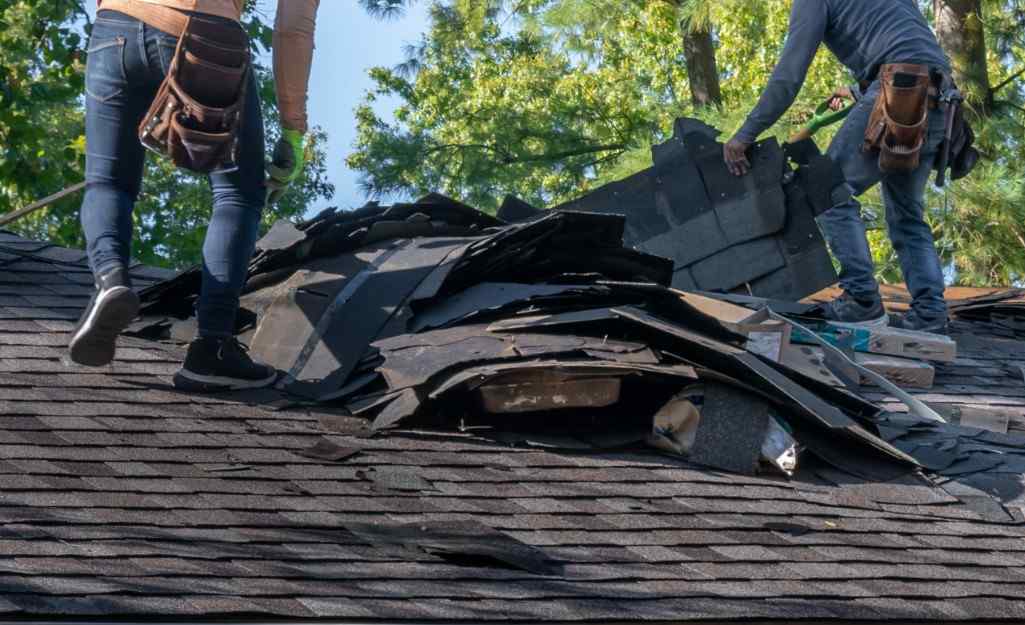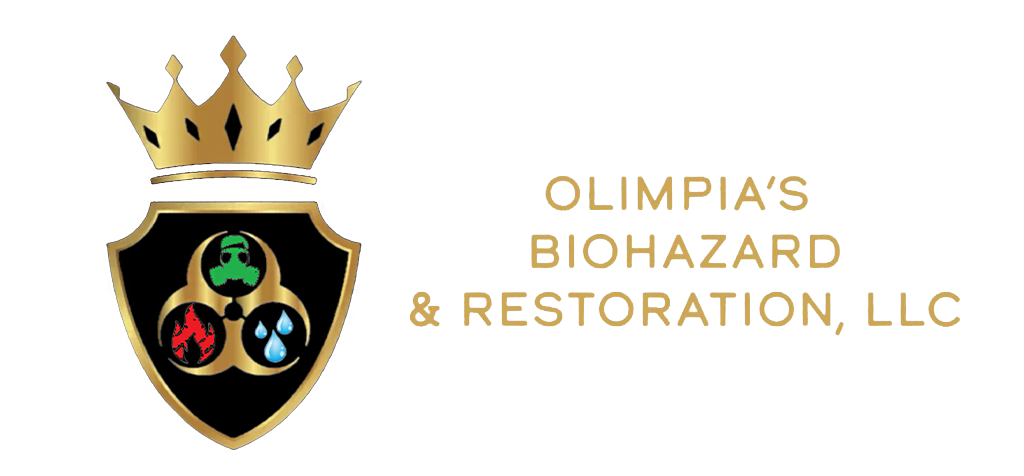Fire, a destructive force that can wreak havoc on homes and businesses, leaves behind not only charred remnants but also a myriad of potential hazards. In the aftermath of a fire, the urge to take matters into your own hands and embark on a do-it-yourself (DIY) fire remediation project may be strong. However, the dangers lurking in the aftermath of a blaze are often underestimated. In this blog, Olympias’s Biohazard & Restoration LLC will help you enter into the perils of DIY fire remediation and underscores why entrusting the task to professionals is not just advisable but crucial for ensuring a safe and effective recovery.
Understanding the Aftermath: More Than Meets the Eye
Fires, whether large or small, leave behind a complex aftermath that extends beyond what meets the eye. The visible damage, such as charred walls and furniture, is only the tip of the iceberg. In the aftermath of a fire, toxic fumes, structural instability, and hidden damages can pose serious risks to those attempting DIY fire remediation.
Toxic Residues: The Silent Threat
The residues left behind after a fire include not only soot and ash but also toxic chemicals released during the combustion of various materials. DIY cleanup efforts without proper protective gear and knowledge can expose individuals to harmful substances, leading to respiratory issues, skin irritations, and other health problems. Professionals, equipped with the right tools and expertise, can safely handle and dispose of hazardous materials, mitigating the health risks associated with exposure.
Structural Instability: A Ticking Time Bomb
Fires compromise the structural integrity of a building, making it prone to collapse. Attempting to assess and address structural damage without professional guidance is a dangerous undertaking. Professionals have the expertise to conduct thorough structural evaluations, identifying compromised areas and implementing safety measures to prevent further harm. DIY attempts, on the other hand, may exacerbate the situation, leading to unforeseen consequences.
DIY Fire Remediation Pitfalls: A Recipe for Disaster
While the impulse to tackle fire remediation independently in Portland may stem from a desire to save costs, the potential pitfalls far outweigh the perceived benefits. Here are some common DIY mistakes that can turn a remediation project into a disaster:
Inadequate Risk Assessment:
DIY enthusiasts often underestimate the risks associated with fire-damaged structures. Lack of proper risk assessment can result in accidents, injuries, or even fatalities. Professionals undergo rigorous training to identify and mitigate risks effectively, ensuring the safety of both themselves and those around them.
Incomplete Smoke and Soot Removal:
Smoke and soot can permeate every nook and cranny of a property, causing long-term damage if not adequately addressed. DIY cleaning methods, such as using household cleaners, may seem effective on the surface but often fall short of removing hidden residues. Reading about how professionals effectively deal with smoke damage in Portland may help you understand how it’s not a DIY job. Professional fire remediation services employ specialized equipment and techniques to thoroughly eliminate smoke and soot, preventing lingering odors and health hazards.


Improper Handling of Water Damage:
The water used to extinguish a fire can create secondary damage, including mold growth and structural deterioration. DIY enthusiasts may not have the expertise to address water damage effectively, leading to long-term consequences. Professionals use advanced equipment like moisture meters and dehumidifiers to identify and mitigate water damage, safeguarding the property against future issues.
The Professional Advantage: Why Expertise Matters
In the aftermath of a devastating fire, the road to recovery is fraught with challenges that extend beyond the visible scars. It is during these critical moments that the professional advantage in fire remediation becomes paramount. Entrusting the restoration process to seasoned experts goes beyond a matter of convenience; it is a strategic decision grounded in expertise and a commitment to comprehensive recovery. This blog delves into the vital importance of professional expertise in fire remediation, shedding light on how the knowledge, skills, and specialized tools wielded by professionals significantly elevate the quality and safety of the restoration process.
Comprehensive Assessment and Planning:
Professionals conduct thorough assessments to identify all aspects of fire damage, including structural issues, toxic residues, and water damage. This comprehensive approach allows for a well-informed and strategic remediation plan tailored to the specific needs of the property.
Safety First:
Professional fire remediation teams prioritize safety throughout the entire process. From wearing appropriate personal protective equipment (PPE) to implementing safety protocols, their commitment to creating a secure working environment minimizes the risks associated with fire remediation.
Specialized Equipment and Techniques:
Professionals leverage advanced tools and techniques designed for efficient and thorough remediation. Specialized equipment, such as HEPA vacuums, air scrubbers, and ozone generators, ensures the removal of contaminants, odors, and residues, providing a level of cleanliness that DIY methods cannot achieve.
Preventing Long-Term Consequences:
Fire damage can have lasting effects if not addressed comprehensively. Professionals not only remediate the immediate damage but also implement preventive measures to mitigate long-term consequences. This proactive approach safeguards against issues like mold growth, structural deterioration, and health hazards.
The Cost of Cutting Corners: Financial and Health Implications
While the initial expense of professional fire remediation may appear intimidating, opting for DIY solutions can lead to significantly costlier repercussions. Incomplete or improper remediation may contribute to persistent property damage, health issues, and complications with insurance claims, making the upfront investment in professionals a prudent and cost-effective choice in the long run. Prioritizing expertise and safety ensures a comprehensive recovery, mitigating the risks associated with DIY fire remediation attempts.
Healthcare Costs:
DIY fire remediation without proper precautions may expose individuals to harmful toxins, potentially resulting in health issues that necessitate costly medical interventions. Conversely, professionals prioritize stringent safety measures, mitigating the risk of health-related complications and ensuring a secure and health-conscious remediation process. Investing in professional services not only safeguards your property but also protects the well-being of those involved, minimizing the long-term impact on both health and finances.
Extended Property Damage:
Neglecting thorough fire remediation can unleash a cascade of enduring property issues, from the insidious growth of mold to compromised structural integrity and lingering odors. The financial toll of addressing these persistent consequences surpasses the upfront expenditure on professional fire remediation services. Investing in comprehensive remediation not only restores immediate damage but acts as a crucial deterrent against prolonged and costly repercussions.


Insurance Complications:
DIY fire remediation poses a risk to insurance claims as haphazard attempts may exacerbate damage and create safety hazards. Professionals, adhering to industry standards, navigate the remediation process in alignment with insurance requirements and regulations. Taking a look at the signs on when to call the remediation services may help you clear your vision. Their expertise not only guarantees a thorough recovery but also safeguards the integrity of insurance claims, providing a reliable and compliant path to financial restitution.
Conclusion: Prioritizing Safety and Effectiveness
In the aftermath of a fire, the desire to regain control and restore normalcy is understandable. However, the dangers of DIY fire remediation are too significant to ignore. Professionals in fire remediation bring expertise, safety protocols, and specialized tools to the table, ensuring a comprehensive and effective recovery process. When faced with the aftermath of a fire, the wisest choice is to prioritize safety, health, and the long-term well-being of the property by entrusting the remediation to skilled professionals. The cost of professional services is an investment in a thorough and secure recovery, minimizing the risks and consequences associated with DIY attempts.
FAQ’s
Is it safe to clean up after a fire?
Cleaning up after a fire poses health risks due to toxic residues. Without proper equipment and expertise, DIY efforts may lead to exposure to harmful substances. Hiring professionals ensures a safe and thorough remediation process.
Is it safe to use dishes after a house fire?
Using dishes after a house fire is not safe as they can absorb harmful toxins and residues. Soot and smoke contaminants may compromise the safety of utensils. Professional cleaning and assessment are essential before considering the reuse of dishes after a fire.
Is there toxins after a building fire?
Yes, a building fire releases harmful toxins, including carbon monoxide, formaldehyde, and particulate matter. These toxins can linger in the air and settle on surfaces, posing health risks. Professional remediation is crucial to safely remove and mitigate the impact of these toxic residues.
What is the best way to clean fire damage?
The best way to clean fire damage is to hire professional remediation services equipped with specialized tools and expertise. They use advanced techniques to remove soot, smoke residues, and address water damage comprehensively. Professionals ensure a thorough and safe cleanup, preventing long-term consequences.
What not to use after a house fire?
Avoid using porous items like mattresses and upholstered furniture as they can trap toxic residues. Refrain from using electrical appliances or outlets until they are inspected by professionals. Additionally, steer clear of DIY cleaning methods, as improper techniques may exacerbate damage and health risks.
